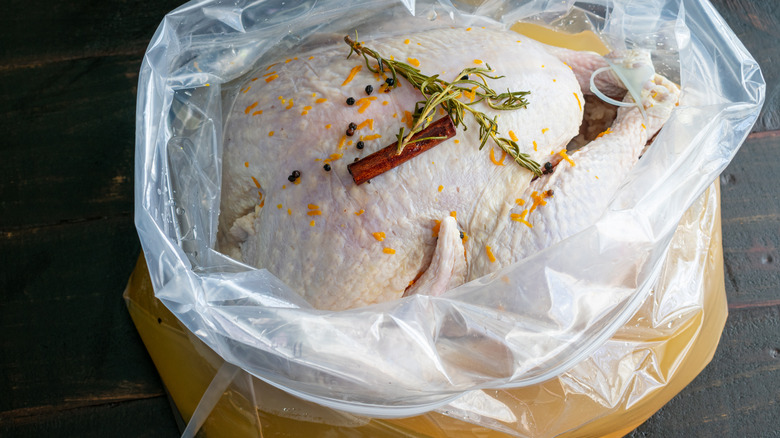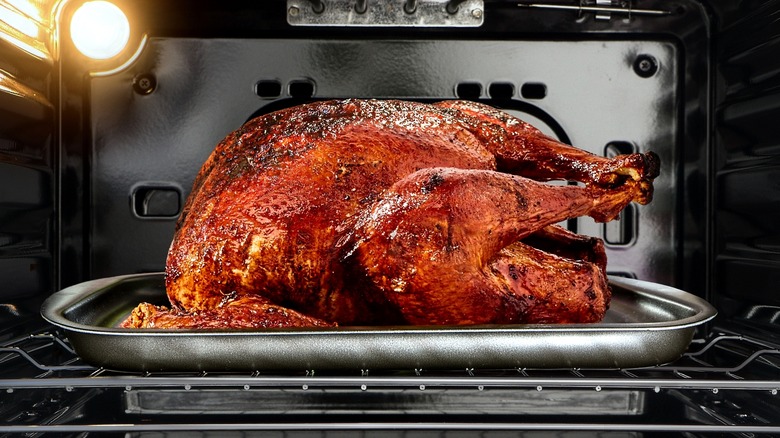Is A Dry Or Wet Brine Better For Turkey?
Whether you're starting your Turkey Day prep or you simply want to fill the house with the delectable aromas of roasting turkey, one of the biggest controversies is whether or not to brine the bird. Not only that, but you have to decide between a wet or dry brine. In general, experts are fans of brining turkey, as both wet and dry brines use the power of salt to make meat more flavorful and keep the turkey from drying out during the roasting process.
Wet brining requires submerging the turkey in a solution of salt water, while dry brining is essentially a salt-based rub, according to Real Simple. Both brining methods have their benefits and drawbacks, and sometimes the decision to wet or dry brine comes down to practical considerations like how much refrigerator space is available. Given that the average turkey purchased for Thanksgiving weighs about 15 pounds, according to the University of Illinois Extension, the decision about how to handle the bird before cooking is a big one.
Dry brining is the way to go
Fans of wet brining turkey argue the process infuses more moisture into the turkey than dry brining, and the process also takes less time, according to Clemson University's Home & Garden Information Center. Since a wet brine requires that the turkey be submerged in the brining liquid, you'll need a large vessel to hold both turkey and brine, meaning lots of refrigerator space or using a cooler that absolutely must maintain a temperature below 40 degrees Fahrenheit in order to reduce the risk of foodborne illness, Real Simple explains.
Those who favor dry brining rightly point out that while wet brining may, in fact, produce a turkey that contains more moisture, much of that moisture is water, rather than the natural turkey juices, resulting in a watery bird with a less-than-ideal texture. Epicurious agrees, arguing that dry brining is not only simpler, but it produces a turkey with more flavor and crispier skin. Serious Eats lands in the dry brining camp as well, touting the "intensely flavored results" of a brine that's not watered down. Yes, dry brining may take a little longer than wet brining, as experts recommend anywhere from one to three days for a perfect dry brine, but the better flavor and texture is worth it.

